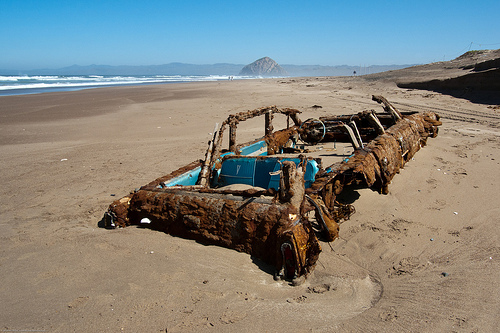
 This morning’s devotion, in the spirit of the Lenten Season, and its consequential–unfortunate but nonetheless natural!–to-do lists, not-to-do lists, self-disciplines, and self-restraints; reminds us of Christ our Treasure, not confined to the whims of the heart but the solid ground of things heavenly, the love of God the Father. It comes from Ethan Richardson:
This morning’s devotion, in the spirit of the Lenten Season, and its consequential–unfortunate but nonetheless natural!–to-do lists, not-to-do lists, self-disciplines, and self-restraints; reminds us of Christ our Treasure, not confined to the whims of the heart but the solid ground of things heavenly, the love of God the Father. It comes from Ethan Richardson:
Do not lay up treasures on earth, where moths and rust destroy and where thieves break in and steal, but lay up for yourselves treasures in heaven, where neither moth nor rust destroys and where thieves do not break in and steal. For where your treasure is, there your heart will be also.
I have this friend (I promise it’s not me!) who calls himself “a well-intentioned nomad with a penchant for idealism.” Whether it’s deciding the right microbeer or just the right record to “make the moment”, or the right next-step-two-year-career towards intentional living, this friend—again, not me, of course—has a tendency to construct the most illustrious plans for a life in total congruence with what he envisions will “complete a picture” and “ignite a passion.” Of course, it’s not surprising that these plans tend to bounce a bit, to pick up and move on at almost predictable intervals. It’s extremely easy to dismantle this perspective from an objective standpoint, but it also sounds really, really good when those things envisioned seem so perfect.
And yet they’re not. Nothing’s perfect, and I should have guessed this as I rode in the car with this friend, newly returned a bearded localvore from his latest overseas, return-to-simplicity, slow-food, socially just excursion. I should have guessed, but at the time I was just as enamored with his narrative as he had been before he left. And yet he told me it pretty much sucked, and he sort of wondered if he wholly regretted having gone. He said it didn’t add up. The image he had created, and continues to create, had no room for the imperfections that rotted away the self-created ideal. The moment just ended up feeling hollow.
Surely we can relate. I had recently been looking forward to a trip to London for months, to finally have that time to write those poems I had been longing to write in that coffee shop with that perfect cup. And here I sat, in that coffee shop with that latte and that perfect pen and paper, and my back is sweating and somewhere it smells like someone farted. And I realized I had no poem, but merely a shell, and I began to feel really sad.
 Who doesn’t look back ten years and think to themselves, “I was a complete idiot! Why did I ever think calling her back was a good idea?” or “Why did I take that job? I was so much happier before.” And yet we somehow believe that the idealistic constructions within the mind we have now is safe from anything similar happening ten years down the road. Somehow we still believe that we know what we need best.
Who doesn’t look back ten years and think to themselves, “I was a complete idiot! Why did I ever think calling her back was a good idea?” or “Why did I take that job? I was so much happier before.” And yet we somehow believe that the idealistic constructions within the mind we have now is safe from anything similar happening ten years down the road. Somehow we still believe that we know what we need best.
Thankfully, the gospel message here bluntly says we’re wrong. The good news here: we actually don’t know what’s best, and that that’s actually right and good and peace-giving. It’s best not to put a lot of stock in our own ideas for what will fulfill us, because all our treasures are eventually eaten up in the moths and rust of human reality. What we can bank on, though, is the gracious supply of our loving Lord, who meets our silly plans where we are and moves us beyond them in ways we cannot see or hope for, and yet strangely, unknowingly, long for. By laying up our treasures in heaven, we allow our hearts to trust what’s always been in control anyways—and thereby find peace.

COMMENTS
One response to “Hopelessly Devoted: Matthew Chapter Six Verses Nineteen through Twenty Four”
Leave a Reply













Thank you Ethan for this wonderful reflection. I can totally relate, both to the idealism and the relief that comes from discovering that I “do not know best.” I’ve never read anything more definitive (and affecting) on these Gospel implications that pp. 60-62 of the Big Book of Alcoholics Anonymous, the stuff about the actor who thinks he is a director. What a fantastic meditation and reminder to me this Monday. JZ